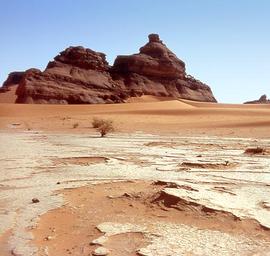Global Warming and Greenhouse Effect
Oct 22
Some economists are trying to estimate the cost of damages caused by climate changes, sometimes mentioning specific numbers. Other economists criticize them for their assumptions and scenarios. Most likely, the following sectors will have difficulties: banks, agriculture, transportation and some others. Nevertheless, a general attempt to estimate economic risk from global warming is a good idea.

In other words, it is considered that human activities contribute to global warming.
What can possibly result from global warming? These include the melting of the ice caps, which would lead to rising sea levels, increased storm activity, an expanse of tropical areas, glacier retreat and other events. This was concluded by the Intergovernmental Panel on Climate Change, although some individual scientists do not agree with all conclusions and findings of the IPCC. Still, some issues are not quite clear for scientists, such as the differences of global warming effects in different areas of the planet and the actual increase in warming.
The Kyoto Protocol has been ratified by most countries around the world. Its purpose is to reduce greenhouse gas emissions.
Human activity isn't the only catalyst in global warming; other factors are involved as well. Notable changes have been observed in solar luminosity, volcanic eruptions, variations in solar activity and others. Scientists think, however, that even if the concentrations of greenhouse gases were not increasing, a further warming would continue anyway.
Joseph Fourier discovered the greenhouse effect for the first time in 1824. Later, in 1896, the greenhouse effect was further investigated by Svante Arrhenius.
Since the industrial revolution, people have increased greenhouse gas concentrations in the air. Different possible scenarios have been offered. For example, the level of CO2 could possibly reach 541 to 970 ppm by the year 2100. This, of course, would all depend on such factors as economic, technological, sociological and natural developments.
In the meantime, economic and political debates are taking place to find a balance between the costs entailed by the restrictions of the Kyoto Protocol and the costs associated with global warming. Countries following the Kyoto Protocol should reduce the release of CO2 emissions because it is good for their economies. China and India are not following the Kyoto Protocol fully, even though they have been criticized by the United States and Australia.
Related Posts
- Top 5 List of Greenhouse Gases
- Global Warming Effects on Antarctica Review
- Rise in Meat Consumption Increases Environmental Concerns
- Big Time Effect of Drought on the U.S. and the World
- Record-Setting Amounts of Ice Still Covering the Great Lakes
5 Responses to “Global Warming and Greenhouse Effect”
Leave a Reply
You must be logged in to post a comment.





Hi, I really enjoyed reading your blog, and it looks wonderful. If you get a chance you should visit my site as well. I hope you have a good day!
September 4th, 2010 at 11:46 amPretty nice post. I just stumbled upon your blog and wanted to say that I have really enjoyed browsing your blog posts. In any case I¡¯ll be subscribing to your feed and I hope you write again soon!
September 3rd, 2010 at 7:32 amI thought it was going to be some boring old post, but it really compensated for my time. I will post a link to this page on my blog. I am sure my visitors will find that very useful.
September 1st, 2010 at 10:48 pmGreat post. Thanks. I just added your site to my myspace page.
August 30th, 2010 at 1:45 amWe appreciate you the advice! I will try it out.
August 3rd, 2010 at 7:07 am